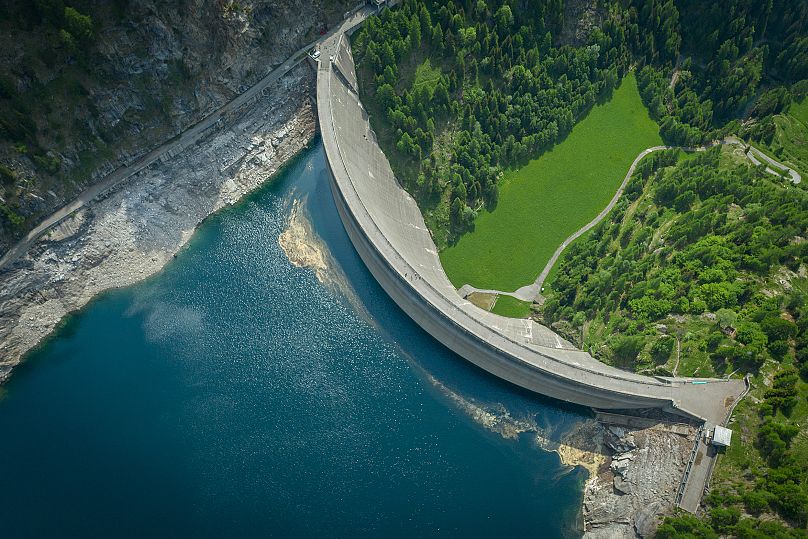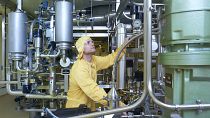Public health and planetary health are inseparably linked. A healthy environment fuels vibrant human living in the same way a polluted world degrades our air, water, and every resource that feeds life.
We see this most vividly in cities with high quantities of air pollution and corresponding levels of respiratory illness and other disease. Or in hotspots where food systems and supply chains are impacted by increasing bouts of extreme weather, raising the risk of cardiovascular disease, injury and death. Places with unsafe drinking water and degraded soil—often low-income areas and among communities of color—also experience more negative health outcomes than areas with high environmental standards.
Within the past decade, the World Health Organization estimates as many as 24 percent of all deaths worldwide were attributable to the environment. Worldwide, the agency expects to see more than 250,000 additional deaths each year due to rises in climate-fueled cases of malnutrition, malaria, and heat stress. The shock waves caused by those deaths alone are estimated to cost between $2 to $4 billion each year as families, communities, and health systems struggle to respond.
Pharmaceutical companies have an important role to play in mitigating the worst of these effects and advancing the green agenda. In addition to producing innovative treatments, we have significant influence on the health of the environment depending on how we use or conserve energy, how we develop and distribute our products, and how we dispose and recycle byproducts. That’s why our industry must commit to ambitious climate and environment targets set by the European Commission to be completely carbon neutral by 2050 and reduce all greenhouse emissions by at least 55 percent.
Novartis is committed to being a catalyst for positive change and a leader in environmental sustainability. Our continued investment in our planet is critical to delivering on our purpose to reimagine medicine to improve and extend people’s lives.
Our company has set—and is on track to reach—ambitious goals to become carbon neutral in our operations by 2025 and across our entire value chain, including suppliers and other partners, by 2030, which will put us on track to become net zero by 2040. Within the next decade, we are also working to become water sustainable and enhance water quality everywhere we work. And by 2030, we intend to become plastic neutral, eliminating PVC from secondary packaging among other things.
These commitments are rooted in specific on-the-ground investments we are making. We have partnered with three developers on virtual power purchase agreements linked to six new solar and wind parks in Spain, which will help us eliminate nearly a third of our remaining scope 1 and 2 emissions and be completely carbon neutral for all electricity procured in Europe.
More patients around the world will see these investments at work. We have begun to review every product we make, asking how we can design our inhalers, medicines and treatments more sustainably, deliver them more efficiently, and recycle them more consistently. Our success relies on making progress at every level, which is why we are working to embed environmental sustainability thinking across our company.
Policymakers in Europe and around the world can help accelerate the shift to a more sustainable world. Incentivizing fair and equitable supply chains and promoting policies that incentivize carbon, water and plastic reductions will pave the way for more robust and innovative action in the private sector.
For example, we would like to see more European countries adding environmental sustainability criteria and security of supply in their procurement processes, such as tenders. The Nordics are leading the way, and we hope that more countries will embrace “smart” procurement to improve the security of supply for patients by supporting environmental solutions for the planet.
The European Union can be a leader in this environmental transformation and pave the way for other countries and regions. With the Green Deal, it has set ambitious targets to reach carbon neutrality and reduce greenhouse emissions. At Novartis, we have embraced these ambitious targets, aiming to be carbon neutral across our value chain by 2030 and to achieve net zero by 2040. We have adopted a “can-do” mentality to support the European institutions and be a partner in reaching these goals.
We cannot afford to wait. This moment calls for bold thinking and transformative ideas. It demands we reward those who lead and encourage others to catch up. Working together across our economies, we must take every opportunity to bring together stakeholders, elevate big ideas, and facilitate productive dialogues. The progress we make today will shape the lives of generations to come.
By Montse Montaner and Elke Grooten
Montse Montaner is the chief sustainability officer of Novartis. Elke Grooten is head of EU relations and head of the Brussels office at Novartis.




